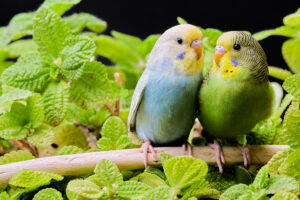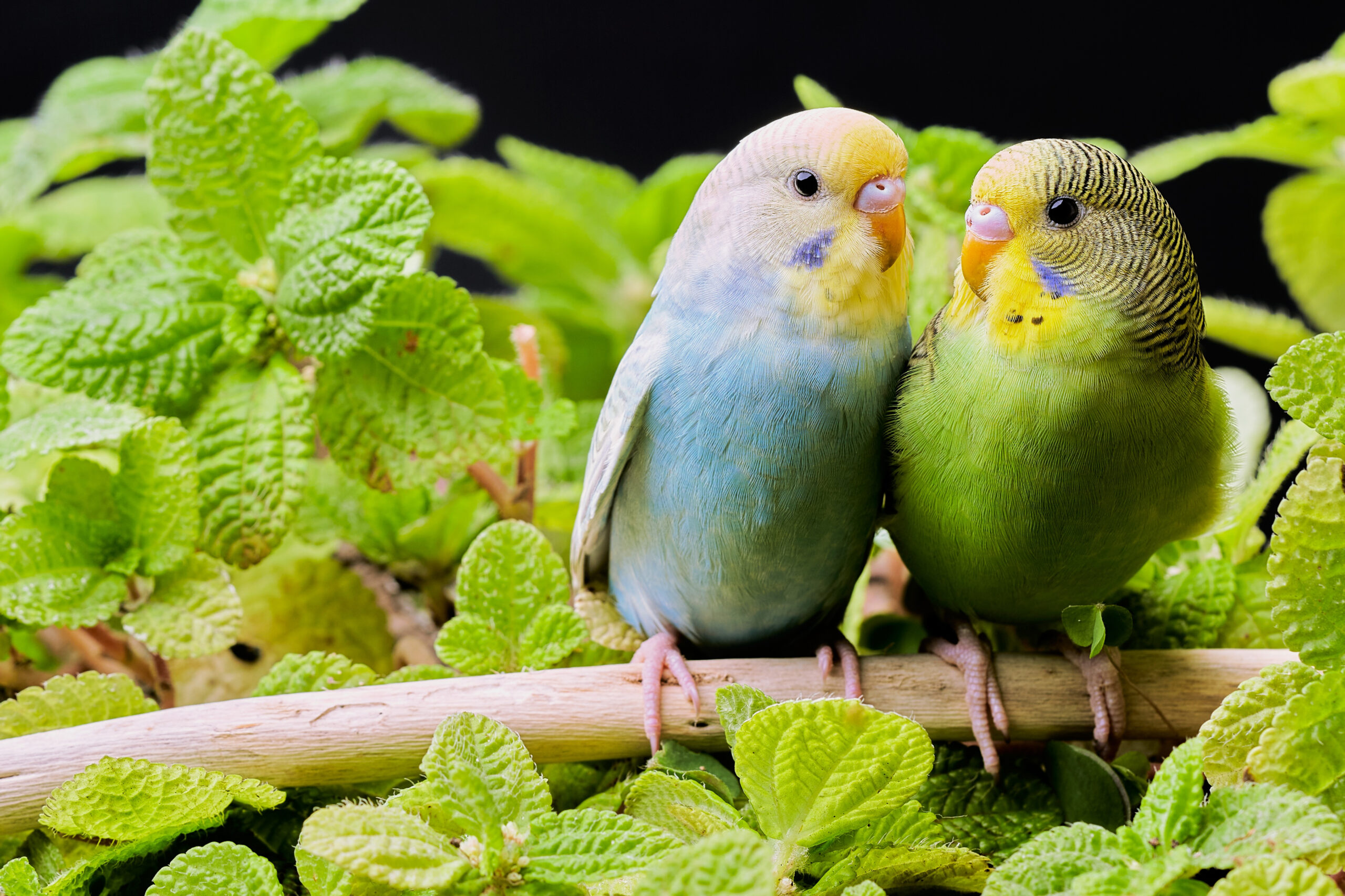
Budgerigar
Looking after a budgerigar, commonly known as a budgie or parakeet, involves providing them with proper care, attention, and a suitable environment. Here are some essential tips for looking after a budgerigar:
- Cage and Habitat:
- Choose a spacious and well-ventilated cage that allows your budgie to spread its wings and fly within.
- Place the cage in a location that gets natural light but is away from drafts, direct sunlight, and extreme temperature fluctuations.
- Line the bottom of the cage with newspaper or bird-safe bedding to make cleaning easier.
- Proper Diet:
- Provide a balanced diet consisting of high-quality commercial budgie seed mix, supplemented with fresh fruits, vegetables, and occasional treats.
- Fresh water should always be available in a clean container.
- Avoid giving them toxic foods like avocado, chocolate, caffeine, and alcohol.
- Toys and Enrichment:
- Budgerigars are intelligent and active birds. Offer a variety of toys, perches, and items for mental stimulation and physical exercise.
- Rotate their toys regularly to keep them engaged.
- They will love any toy that makes a bit of noise.
- try and avoid mirrors as it can sometimes make them aggressive or depressed (especially during breeding season, usually at the beginning of spring but can be all year round).
- Social Interaction:
- Budgies are social birds and need companionship. It’s best to keep them in pairs or small groups. If you have only one budgie, spend plenty of time interacting with it daily.
- Talk to and play with your budgie to build trust and create a bond.
- Grooming:
- Budgies are good at keeping themselves clean, but they may occasionally require a gentle misting with lukewarm water for bathing.
- Trim their nails as needed, or provide abrasive perches to help keep them naturally worn down.
- provide cuttle fish which is a natural way of maintaining their beaks length, it is also a natural form of calcium.
- Health Care:
- Regularly monitor your budgie’s health, checking for signs of illness like changes in appetite, behaviour, or droppings.
- Find an avian veterinarian for regular check-ups and vaccinations.
- Keep their environment clean to prevent the spread of diseases.
- Avoid putting the cage near doors or windows, as drafts can be dangerous for birds.
- Training and Taming:
- Patience and positive reinforcement are key to taming and training your budgie. Use treats and praise for good behaviour.
- Teach them simple tricks and commands to stimulate their minds.
- Try and avoid being loud for the first 2 weeks to help reduce stress for your budgie.
- Noise and Vocalization:
- Budgies are known for their chattering and singing. Be prepared for their vocalizations, especially during the day.
- If noise is an issue, consider their cage placement within your home.
- Safety:
- Ensure that your home is budgie-proofed to prevent accidents. Keep toxic plants, chemicals, and dangerous items out of their reach.
- Love and Attention:
- Budgerigars thrive on social interaction and bonding with their owners. Spend time with them daily, even if it’s just talking to them.
Remember that each budgie has its own personality, and it may take some time to build trust and establish a routine that works for both you and your feathered friend. With proper care and attention, budgerigars can be delightful and loving companions for many years.




Leave A Comment